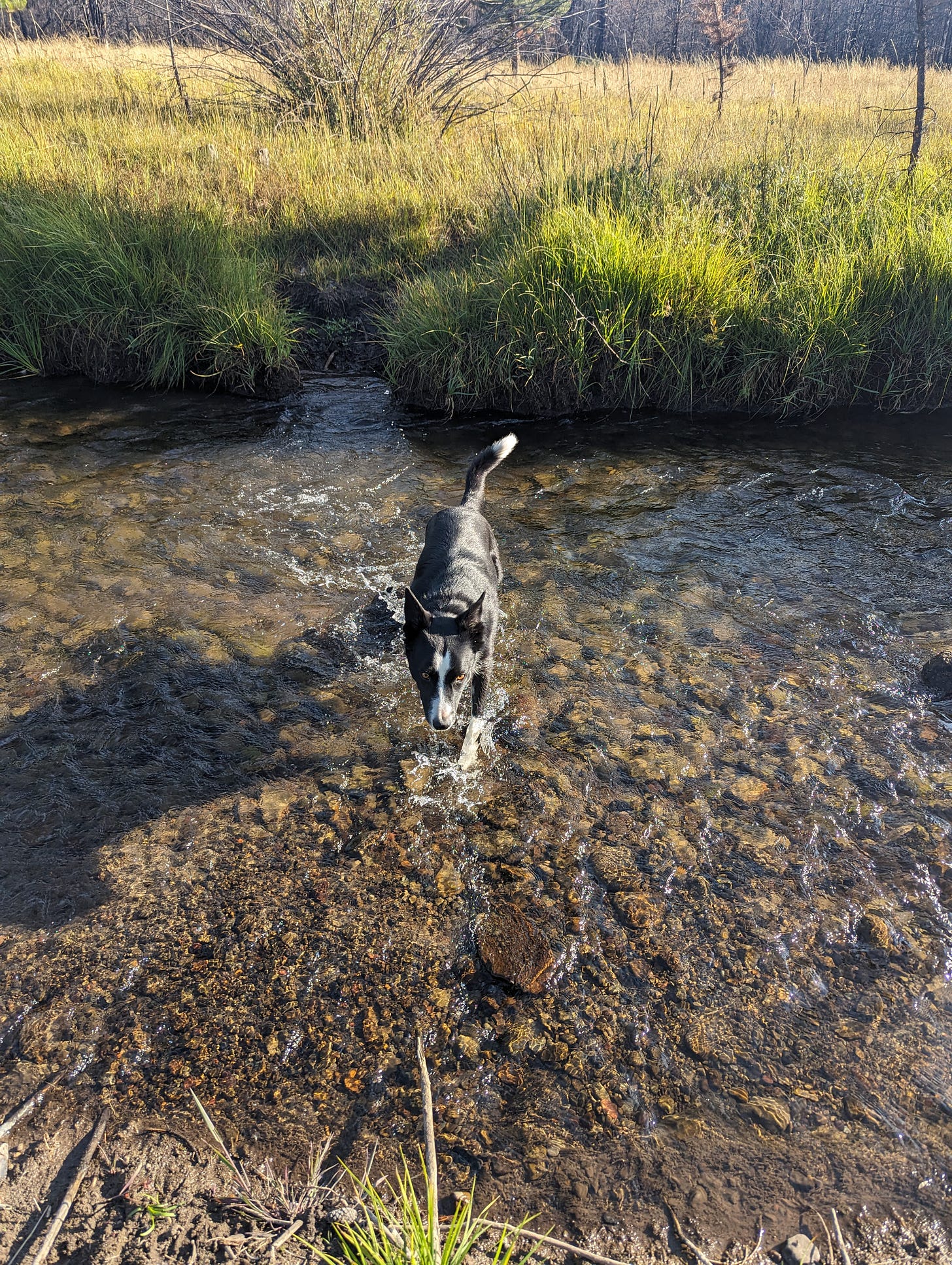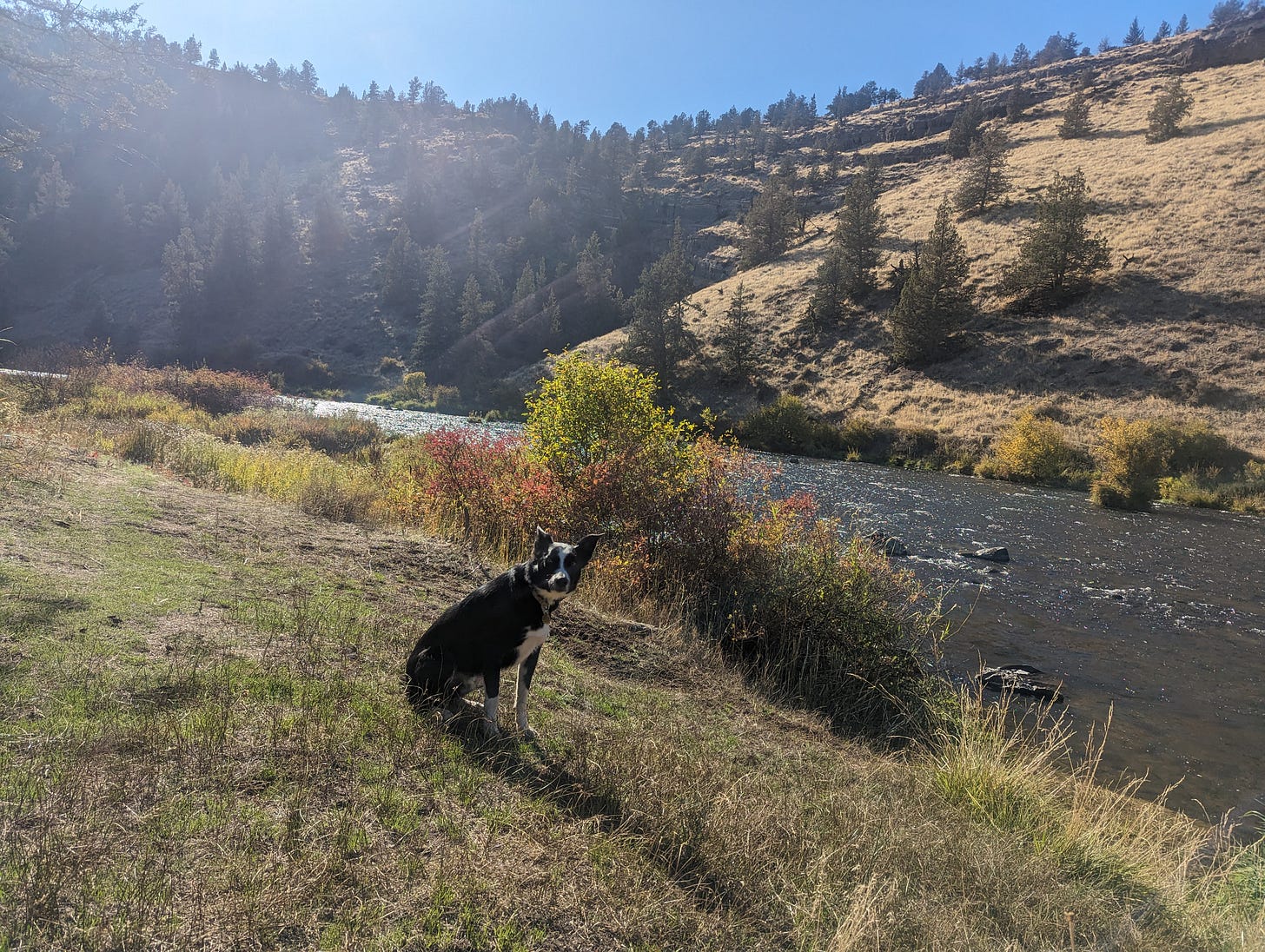Don't Call it a Divide.
It is not the urban-rural divide; it is our interchange.
Leo and I should be writing about the urban rural divide, but we don’t.
People are talking about the urban rural divide. Or at least when I talk about it I see people nod knowingly. Those are the people we want to be talking to.
Yesterday I received an automated email from the New York Times linking to Emma Goldman’s article “How ‘Rural Studies’ Is Thinking About the Heartland.”1 I read everything on this topic voraciously, though often times when a coastal paper publishes these articles it is a masochistic process. But here was something different. The recent weird hit-piece on being rural, White Rural Rage seems to have inspired antipodal reporting; perhaps this complex and important issue is going to get more consideration going forward. We hope so.
To be found by the audience thinking about this discourse, Old Truck Good Coffee needs to say and re-say “the urban-rural divide in America.” That is how people are using their search engines to confirm their bias. Maybe we could insert ourselves in their reading. We have a lot to say to America about how the urban and rural spaces interact.
Leo and I have both been across that space many times and we are here to tell you that it is not a divide at all. Perhaps when a writer in New York needs to do a book report on a deadline, or a rancher in Colorado is dealing with very real wolves that he did not want on his land, it feels like a divide.
But crossing through it, driving or reading or eating in cafes across it, you see that the urban-rural cultures of America breathe each other in.
America has an urban-rural interchange. It just looks like a divide if you don’t get too close to it.
Economics, though dismissive, dismal and dehumanizing, are illustrative. Goods and services travel across the interchange constantly. Rural provides food and the results of extractive industries and the land for aggressive recreating.
The state of agriculture in America is a complicated topic which I have not enough direct knowledge of, but I know that people choose it and it is hard work frequently in conditions that many would consider poverty. The result is food for us all.
Traveling the other direction, the goods and culture from Amazon, Walmart, Costco, Disney, and others connect to people at every place in rural America. Hollywood, New York, and Nashville beam across the county.
If we were looking for a divide, we would be looking for a boundary line. But, statisticians and political thinkers have not solidified what rural is.2Most important to me is people's own definition of themselves and others. As Leo and I discovered we shared, that identity stays with you when you move; for decades we were both rural people living in urban areas.
If you have to think of it as a divide, it is many divides. This nation is fractured. My family is decidedly townie -- although I changed some irrigation pipe as a kid, we have for generations lived in small towns in rural America. We did not live on acreage, we have not grown or raised our living out of the land. Our homes are decidedly close to grocery, hospital and, if at all possible, a record store.
That was certainly a divide from the kids in my high school who drove in from points beyond for class after doing chores on the property.
We were both both isolated from the power of the nation coming from cities, but not living the same life.
When America stares at a divide it widens. When we instead watch the interchange, it gets richer and more dynamic.
America does not just have an urban rural interchange; we are an urban rural interchange. At the very start of the country we discovered a rift between agrarian and urbanizing lifestyles. We are not repeating that history but rhyming with it; the rate of mixing and moving across our cultural interchanges is increasing. The urban response to a Jason Aldean song or the rural spite at a Saturday Night Live faux news report is swift, practically instantaneous. We all learn about the injury and decide what to do at the same time.
Our art, our products, our business, our families almost universally couch themselves in an awareness of another landscape, another way of life. It is challenging for an individual, for a family, for a business, for our government. It is not a challenge for us to escape. And we can not destroy each other to solve the problem.
Writing about the urban rural interchange serves many purposes for me. I exorcise some demons. I verbalize frustrations that scrape at my insides. It is personal. But I am trying to also provide a service to my country and to all the communities that I love.
Working with Leo I learn exceptional parts of his experience — and the fascinating conclusions that he has drawn from them.
Americans hurt each other in response to being hurt, and in response there is further hurt. Perhaps folks call it a divide to protect themselves; the interchange is clearly not all rosiness. Don't expect Leo and I to paint over the ugliness, violence, and degradation that is daily meted out over our interchange. Americans exchange blows as well as goods and services at the interchange.
Wanting to be findable by SEO is key to easy success today. Also, being an easy tool for people’s confirmation bias. We are not that. We desperately want people to not be blind to their condescension, to be aware of how their fear is causing them to disable the other part of their nation, they way they are building the divide, unconsciously, for their own safety.
When we say “people” we mean, quite specifically, you.
If it is a divide, the natural metaphor is to bridge it or heal it. To end the separation. If it is an interchange, we are not and have never been separated. An interchange is not solved. It is the interaction of the river and the land it cuts through.
Our interchange is sickly right now. I hurt to look upon it. I would love for that pain to stop. By writing details, questions, hopes, and frustrations I hope to bring all of our minds to the interchange where we can contribute to a better nation.
Link for subscribers to Emma Goldman. How ‘Rural Studies’ Is Thinking About the Heartland 29 June 2024: [https://www.nytimes.com/2024/06/29/business/rural-studies-american-politics.html?searchResultPosition=1](https://www.nytimes.com/2024/06/29/business/rural-studies-american-politics.html?searchResultPosition=1)





